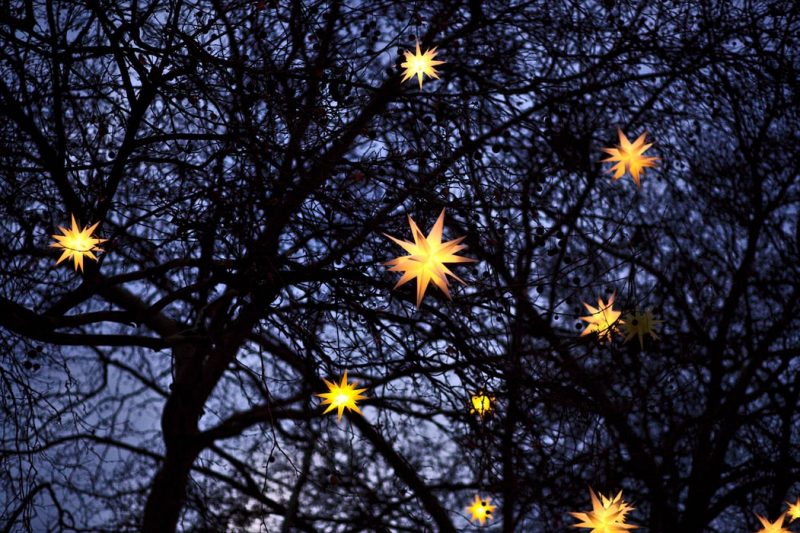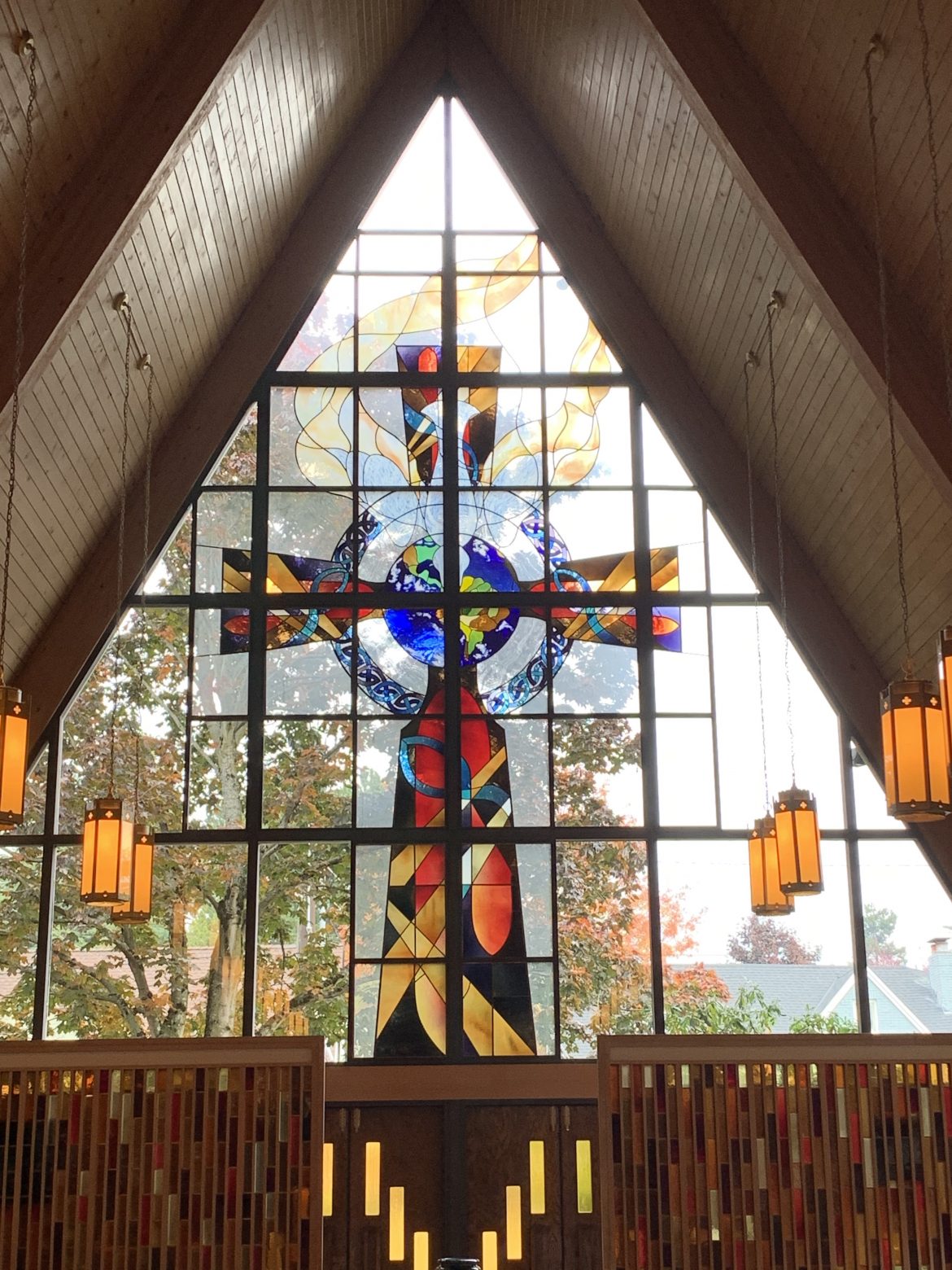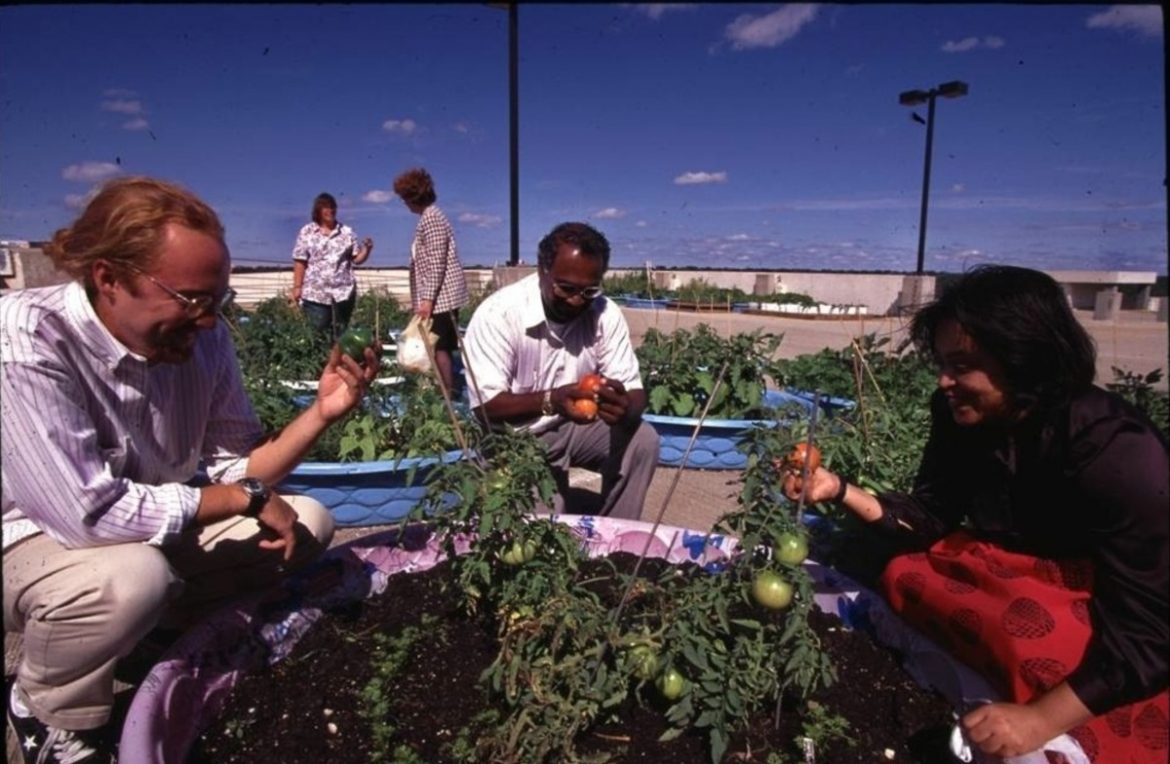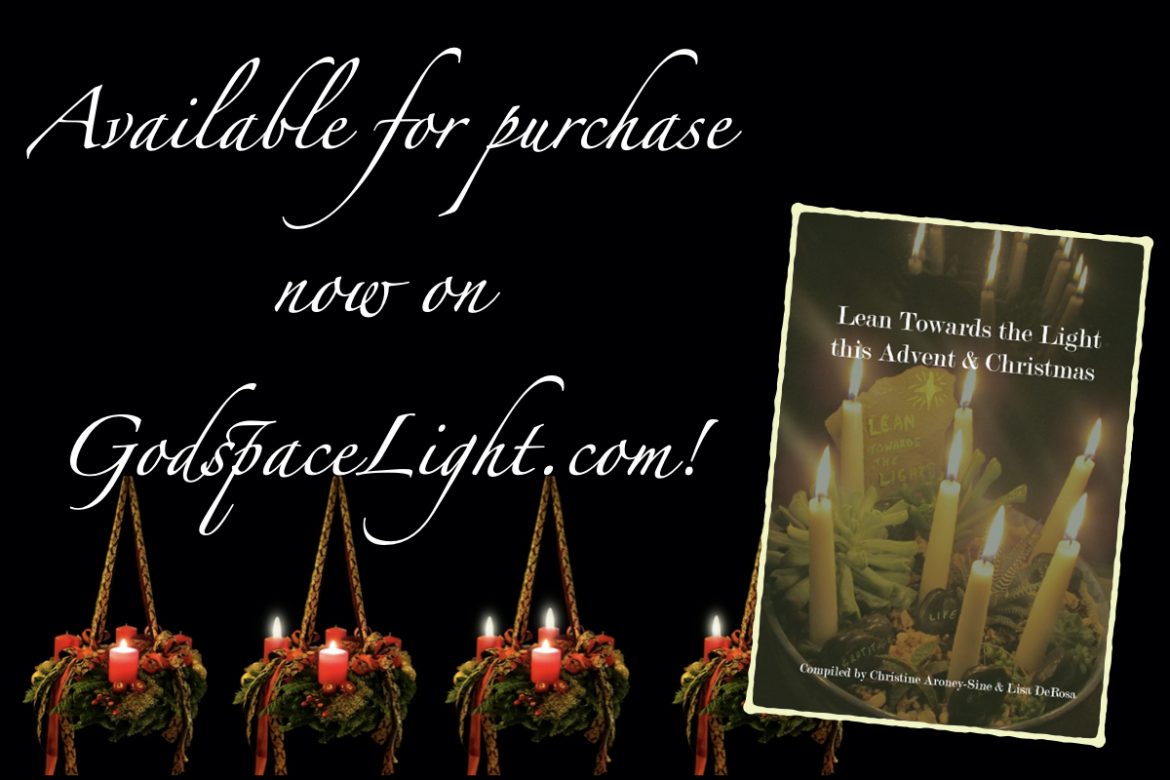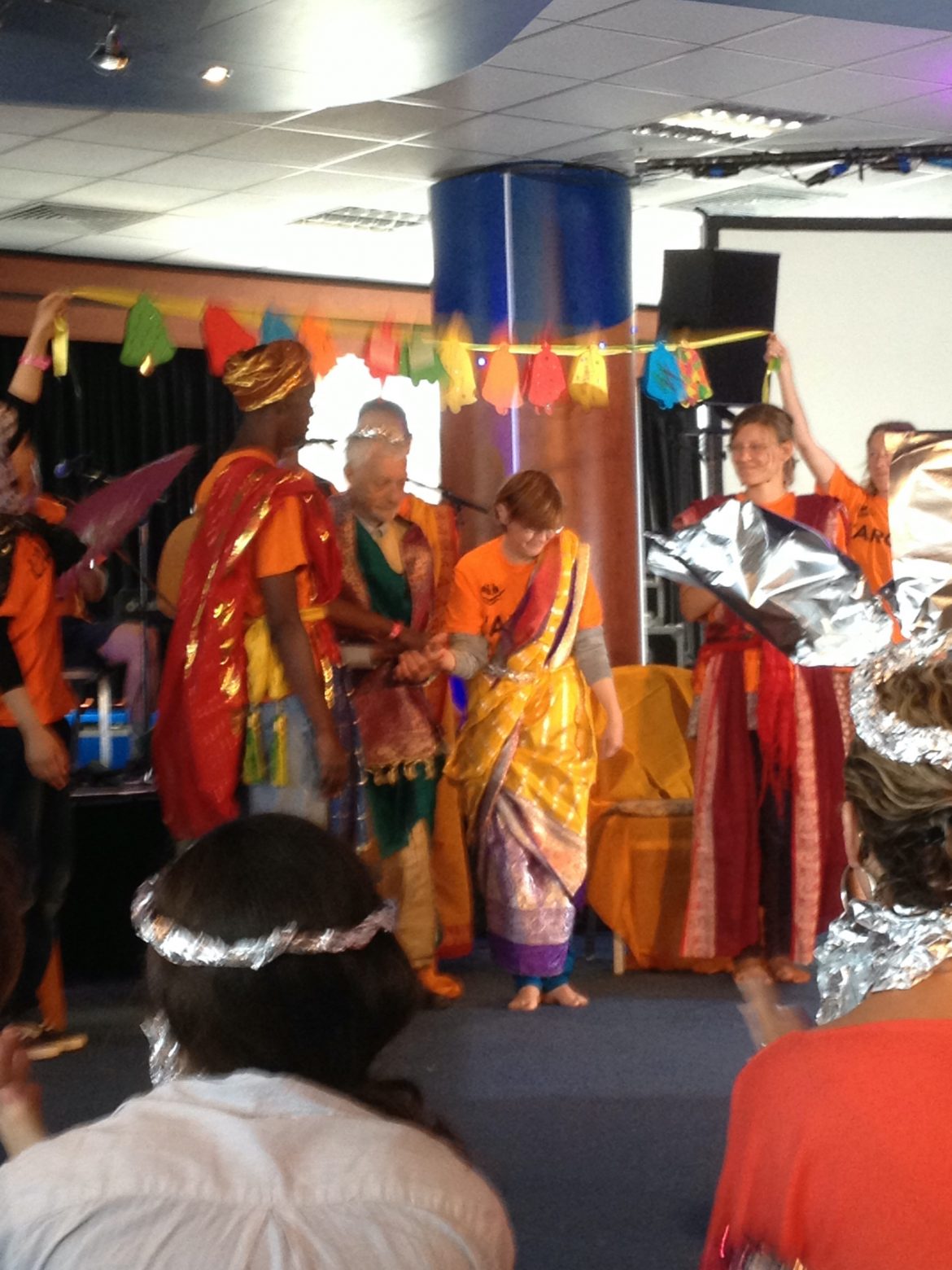by Alex Tang
Discernment is the process of hearing God and trying to align our life decisions to align with God’s will. Often associated with decision making, discernment is used to determine the right choice of spouse, career, or lifestyle changes. However, discernment is much more than decision making. Discernment is drawing close to God with the help of the Holy Spirit to discover what God is saying to our lives. I suggest a discernment framework.
Please watch the video below:
Note: Research has shown that more than 80% of people who use the Internet watches video rather than read blog pages. I am trying to write and shoot short video posts more than blog posts. Thank you, Lisa and Christine, for allowing me to post this YouTube video here. You can see more of my video posts in my YouTube channel.
About the writer
Alex Tang is a spiritual director, a practical theologian and a writer. He is also a consultant paediatrician, and an associate professor of paediatrics in Monash University Malaysia. He can be contacted via his website Kairos Spiritual Formation.
by Christine Sine
At our last community meeting, we started talking about Christmas. Yep, Christmas! It still seems so far off but it needs a little more attention this year as our celebrations will probably look a little different than in previous years. Most of us won’t be traveling to spend time with family and Tom and I won’t have our usual Open House. The focus will be on small, socially distanced rather than large gatherings.
How do we approach the season so that we don’t lose the joy and the fun of celebration?
Following our discussion on Monday night, we established a Google document so that everyone can share their favorite foods and favourite traditions with the hope of combining these into some fun meals and activities over the season. It was suggested that we could celebrate the 12 days of Christmas together – maybe not eating together everyday, but enjoying life together in ways that we normally wouldn’t. It brings a smile to my face just thinking of the possibilities.
What plans could you make now that will help make this a rich and joy-filled Christmas?
What new traditions can we start that bring joy not just to us but to others during the Christmas season?
There are some traditions that I will continue from past years. We will buy and decorate a tree on the first Sunday of Advent. I will probably make an Advent jar, and Tom and I will watch Handel’s Messiah on You Tube rather than going to a live performance. And of course there will be lots of zoom calls to friends and family. But there are some traditions that are not possible this year.
I love our annual Open House not just because I love seeing our friends, but also because I love to bake but don’t want to have to eat all my shortbread and fruit cake myself. So, I am thinking about making Christmas treats for my neighbours, hopefully with other community members, and will also be sending out more and probably larger Christmas packages of homemade products than I usually do. I am thinking of making this Rosemary Orange salt scrub as we have so much rosemary we could easily supply the whole of Seattle. So, I get the joy of cooking and creating new things as well as the delight of sharing.
What new traditions could you start this year that will not only bring life and hope into Christmas this year, but also in the future?
How do we shine the Light?
I notice that people are craving light this season. There are an unprecedented number of Christmas lights already twinkling in the neighbourhood. Our new resource Lean Towards The Light This Advent and Christmas, which will also provide our theme for the Advent season, seeks to provide just such a focus. All of us long to see the light of Christ burst into our world at this season in our personal lives, our communities and our world. Through daily reflections, poetry and practical suggestions, we hope that this resource helps you lean towards that light this year.
I still love the Advent video I created several years ago when we first used the theme Lean Towards the Light and know that this will be one that I come back to over the Advent season.
It contains amazing photos by Craig Goodwin and Tom Balke (Title photo) and beautiful music by Jeff Johnson.
The music is “Antiphon” from the CD, ANTIPHON by the Coram Deo Ensemble. Music by Janet Chvatal, Jeff Johnson & Brian Dunning. ℗© 2011 Sola Scriptura Songs / ArkMusic.com Used with permission. ALL RIGHTS RESERVED.
How will you lean toward the light this Christmas?
Shine the Light of Justice?
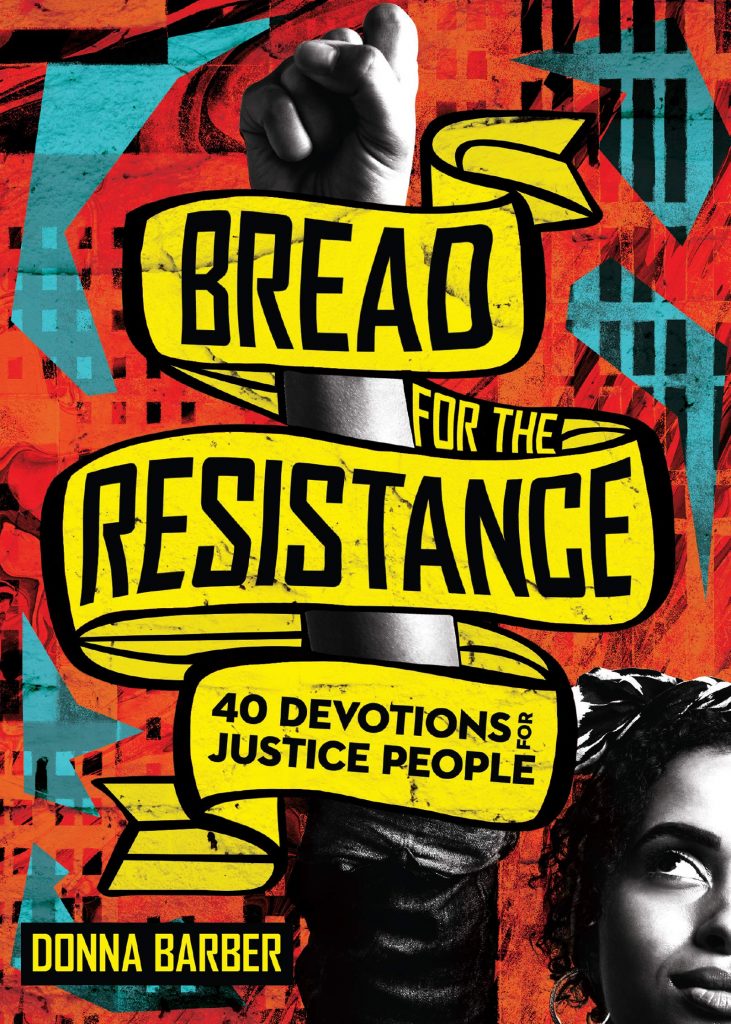
Bread for the Resistance
This isn’t the only light I want to shine during Advent this year and it won’t be the only devotional I read. I also want to shine the lights of justice and challenge myself with new ways to respond. The highlighting of injustice in our society is not a theme that we should ignore this Christmas. Donna Barber’s Bread for the Resistance: Forty Devotionals for Justice People is also on my reading list.
How will you shine the light of justice during this Christmas season?
Shine the Light of Lament
On Godspace, we are noticing that Blue Christmas resources are high on many church leaders priority list and we realize that it is necessary this year for us not just to provide opportunities for joy and light-shining but also for lament and grieving. I hope that the resources we provide on Godspace will be of great value to you. I think the empty chair analogy is particularly poignant this year. If you have other suggestions, please let us know. Also, SAVE THE DATE for December 8th when Lilly Lewin, Kathy Escobar and I will facilitate an interactive Blue Christmas service. (More details to come next week).
How will you incorporate lament into your Christmas observances this year?
Lean Towards the Light
At the moment, I am more focused on getting ready for Thanksgiving than Christmas and I love to call this my thanksgiving season. I have just moved my gratitude garden to pride of place on the dining room table, and next week we will be painting leaves at our Community meeting. All of this helps me focus on the season that is coming.
What helps you focus on the season that is coming and ways to prepare? What other things are you thinking of doing this year that will help you find light and hope as we move towards the celebration of the Christ child? How will you bring joy and laughter into this festive season?
NOTE: As an Amazon Affiliate we receive a small amount for Amazon purchases made through the appropriate links above
Another beautiful contemplative service from St Andrews Episcopal Church in Seattle. Find a quiet place. Light a candle. Take some deep breaths in and out. Relax yourself and enjoy.
A contemplative service with music in the style-of-Taize for the Twentieth Sunday after Pentecost. Carrie Grace Littauer, prayer leader, with music by Kester Limner and Andy Myers.
Permission to podcast/stream the music in this service obtained from One License with license #A-710-756 with additional notes below.
“Kristus din Ande” and “Bless the Lord” are songs from the Taize community – copyright and all rights reserved by GIA/Les Presses de Taizé.
“Christ Be With Me (Prayer of St. Patrick)” – text from the Lorica, or the Prayer of St. Patrick, song by Ruth Cunningham, used with permission. All rights reserved – www.ruthcunningham.com, www.youtube.com/ruthreid/, Instagram: @ruthreid11.
“Kyrie for July 5, 2020” – text by Kester Limner, music by Kester Limner and Andy Myers, shared under the Creative Commons License, Attribution (CC-BY).
“His Eye is on the Sparrow” – public domain hymn written in 1905 by Civilla D. Martin and Charles H. Gabriel.
www.saintandrewsseattle.org
by Tom Sine
Anticipating the Incoming Waves of Food & Housing Crises for Families through 2025
All of us are struggling through a deadly Pandemic that has taken over 210,000 lives in the United States. It has disrupted all our lives and has taken too many of the lives of our friends and loved ones. Most of us realize that this disruption is not going to end any time soon. Many of our churches are reaching out in caring ways to both members and neighbors.
However, given the tidal waves coming our way in the next three to five years, our responses for our lives and congregations are not nearly enough. We need to ask the Spirit of the living God to ignite our imaginations to move from charity to empowerment as well!
The Covid Hardship Watch reports that this crisis is particularly impacting “Black, Latino, Indigenous, and immigrant households…”. The extent and severity of continued hardships like hunger, eviction, and homeliness will depend on whether such relief is robust and reaches those in need. The implications for children in particular are significant.
However, many of us are less aware of the new Pandemic Recession that could happen in the next five years. It is creating a global food crisis and the worst food and housing crisis in the United States since the great recession before the Second World War. It is essential that all of our churches wake up to this crisis and join the new garden revolution.
“Fourteen percent of households with children recently reported they lacked sufficient food to last 7 days compared to 8% without children. More than 4 in 10 children living in rental housing live in a household that either isn’t getting enough to eat or is not caught up on rent,” according to the Covid Hardship Watch.
Family, Food & Shelter Response NOW!
Clearly, this Pandemic food and shelter crisis is becoming much worse for families in all our communities for 2020 to 2025. Here are some immediate ways that you and your church can join Christians and congregations who are creating ways of responding to both the immediate crisis & the long term needs for impoverished families.
1. Responding to the immediate food and shelter needs for families and their kids
Appoint a small group in your church who are known for their ability to make things happen to:
-
-
-
- Rapidly expand what your church is already doing in terms of neighborhood feeding programs;
- Partner with local feeding programs in your community;
- Partner with local Black, Latino and First Nations congregations in your community whose families and kids could be facing greater challenges due to high rates of unemployment;
- Respond to the growing housing evictions by considering a partnership with local motels and hotels to enable homeless families to secure interim housing;
- Directly support the important nonprofits, that already work with families such as Bridge of Hope
-
-
2. Responding to long term needs of families and their kids as First Nations first responders
“Poverty, limited health care, and, in some areas, lack of running water for frequent anti-virus hand-washing, means the COVID-19 pandemic has hit certain tribes, notably the Navajo Nation, hard.” Julie Garreau, the Director for the Cheyenne River Youth Project in South Dakota, said, “these tragedies are always so hard on kids.” She added, “Don’t ever let people tell you children don’t know what is going on.”
The Cheyenne River Youth Project is making a difference. “With its 2.5-acre garden, café, gym, and library, the organization has long provided children with good food and a safe place to learn and have fun.” They drive around in their pickup delivering food to up to 75 kids a day. Garreau said they hope to increase to 250 kids.
They are encouraging families on the reservation to start gardens on their own plot growing “tomatoes, peppers, green beans, radishes, summer and winter squash, onions, or leafy greens.” They also are encouraging them to save seeds for future gardens. Garreau concluded, “When we come out of this terrible pandemic, we will have learned to be stronger. We will be invincible.”
Pastor Turns Food Desert Into a Garden
“Pastor Richard Joyner had to preside over too many funerals for members of his congregation”, the Missionary Baptist Church in Conetoe North Carolina, “due to diseases related to poor nutrition” shortly before the Pandemic arrived.
“One day, he decided to do something about it.” He decided to plant a garden. God ignited his imagination and his energy. He planted a remarkable garden, for times like these, that just kept growing, involving kids and older members in the black congregation. In fact, his initial community garden grew into 20 plots around this interracial community, “including a 25-acre farm run by his nonprofit Conetoe Family Life Center.” He also added their own beehives.
Pastor Joyner decided to expand his gardens and farm into an agricultural training program teaching youth in his church how to grow food and learn about the importance of good nutrition. Remarkably, he enlisted 80 kids to work in the gardens. The farms produced 50,000 pounds of fresh produce a year. Whatever isn’t given to those in need was sold to local restaurants to raise scholarship money for those in the church. Since 2007, this project has enabled families in this poverty-stricken community, before COVID, to cut their food bills in half.
Invite Your Friends to Join You in Growing Hope in Times Like These
How can you and your congregation join those who are reaching out? How can you make sure that kids where you live have enough to eat and a roof over their heads? These immediate needs seem to be getting worse. Then focus on the longer term. How can you and your church enable your neighbors to become more self-reliant as we seek to overcome this painful Pandemic recession?
You and your congregation may not have 25 acres to farm. However, I suspect you might have some land at your church where you could start a new garden in 2021. If you have enough land and you are in a neighborhood where people are out of work or they are seniors with limited means, you might consider inviting them to join you in planting your community garden.
A small house church in Bellingham, WA met in a home that didn’t have any land for a garden. So they got innovative and offered neighbors, with limited means or restricted health, to not only plant a garden for them in their backyard but also semi-dwarf apple and plum trees. Then they periodically stopped by their neighbors’ to check to see how their gardens are growing and offered a little help. I wouldn’t be surprised, during this pandemic time, that they aren’t offering to do a little shopping for their older neighbors as well.
How is God igniting your imagination in times like these to make a difference in the lives of those that are having extreme difficulty keeping their kids fed or a roof over their heads? How is God igniting your spirit to become an instrument of hope?
Let us know how you respond. We would like to share some of your creative compassion with other readers to encourage them to act too!
Article taken from Newchangemakers.com, Photo above by Christine Sine
Our newly published Advent devotional called Lean Towards the Light this Advent & Christmas is available now! We are delighted to share this devotional that begins with Celtic Advent on November 15th and runs through Advent, Christmas to Epiphany on January 6th.
Endorsement by Kathy Escobar:
In a world that’s spinning fast, that’s reliant on technology, that has a never-ended news cycle, that is rifled with division and strife, we can become deeply discouraged, worn-out, cynical. Drawing on the wisdom of the Celtic Christian tradition and a call to return to nature, hospitality, the natural rhythms of life, to non-violence, to beauty, Lean Towards the Light This Advent & Christmas—like all of Christine Sine’s projects—is a wonderful collaboration of voices and perspectives that will help folks walk through Advent season with hope.”
– Kathy Escobar, Co-Pastor, The Refuge and author of Practicing: Changing Yourself to Change the World and Faith Shift: Finding Your Way Forward When Everything You Believe is Coming Apart.
Click below to pre-order the printed book or eBook.
Click below to purchase the book and Advent Prayer Cards bundle!
Pre-Order: Lean Towards the Light this Advent & Christmas + Advent Cards Bundle
by Lilly Lewin
This past week our Canadian friends celebrated Thanksgiving. I’ve felt for a long time that we in America should adopt October Thanksgiving so we wouldn’t have to cram everything together in late November and thus actually get to enjoy the feasting and the family time. Thanks to Covid19, all celebrations are looking and feeling different this year. This is a weird season filled with so many different emotions. There are many days that I need to be reminded that God is still in control and still loving us in the midst of it all. And that leads to our *thinplaceNASHVILLE gathering around feasting. (thinplaceNASHVILLE is the house church we host via zoom twice a week. It is an interactive, multisensory gathering of all ages where we practice lectio divina)
Sunday’s lectionary readings featured three readings about Feasts and Celebrations.
-
Think about big celebrations you’ve been a part of, or feasts or meals that you still remember. What were they like? When have you participated in a great feast or an overwhelming meal or celebration? What made it memorable?
READ the Psalm of the Day
PSALM 23 The Passion Translation
1 The Lord is my best friend and my shepherd.[b]
I always have more than enough.
2 He offers a resting place for me in his luxurious love.[c]
His tracks take me to an oasis of peace, the quiet brook of bliss.[d]
3 That’s where he restores and revives my life.[e]
He opens before me pathways to God’s pleasure
and leads me along in his footsteps of righteousness[f]
so that I can bring honor to his name.
4 Lord, even when your path takes me through
the valley of deepest darkness,
fear will never conquer me, for you already have!
You remain close to me and lead me through it all the way.
Your authority is my strength and my peace.[g]
The comfort of your love takes away my fear.
I’ll never be lonely, for you are near.
5 You become my delicious feast
even when my enemies dare to fight.
You anoint me with the fragrance of your Holy Spirit;[h]
you give me all I can drink of you until my heart overflows.
6 So why would I fear the future?
For your goodness and love pursue me all the days of my life.
Then afterward, when my life is through,
I’ll return to your glorious presence to be forever with you!
Read Old Testament Reading Isaiah 25:1-9 and the New Testament Reading Matthew 22: 1-14
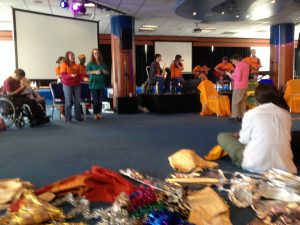
L’Arche worship service
What is God speaking to you about TODAY as you read these passages? Take time to read them again, use different translations to hear it in fresh ways.
What do you notice that you haven’t noticed before?
What questions do you have? What questions come up as you read the passage and/or the psalm? Talk to Jesus about these questions.
Questions to consider and Journal from this week:
- Remember that Jesus is talking to the Chief priests, the “church leaders” when he tells this parable. What do you think they heard if they knew Isaiah 25 well? What was their response to the banquet feast?
- How is the feast in Isaiah 25 different from the feast in Matthew 22?
- It was a great insult to the King to not show up for his banquet. To refuse the invitation, or accept it and then not come would have been disgraceful in ancient times. It would be normal for a King to retaliate with anger and even violence. Have you felt insulted before by someone’s lack of interest in some event you’ve held or party you’ve thrown? Have you wanted to take action against these people because of their disrespect or disinterest? Talk to Jesus about this! If you need to ask for forgiveness or process more about this with Jesus, take the time to do it.
- If we know the king is generous and is about blessing… why do we avoid the banquet? Why do we avoid going to the feast? What stops us from accepting his invitation? What are the excuses we use to avoid celebrating with him? What excuses do we use not to go to the banquet?
- How can we imagine God preparing a meal, a feast, a celebration like this just for us? Picture this. Imagine a feast prepared for you with Jesus. What would your feast look like? Sit down at the table, picture all the food and drinks God has provided for you. Imagine Jesus sitting across from you. What do you notice? What makes you wonder? What emotions do you feel? Does anything make you unfordable as you imagine this scene? RECEIVE THE GIFT OF THE BANQUET!
- READ PSALM 23 again…What if God prepares a table for you in the presence of your enemies but not so you can gloat.What if the table is prepared so you can sit across from your enemies and be reconciled? Who do you need to sit across from and share a feast with in order to have your relationship healed? Who are you in conflict with that you need to sit with at a feast and share in God’s love and forgiveness together? Picture the scene. Imagine this person or person sitting across from you. Imagine Jesus sitting with you. Allow Jesus to heal you and your relationship with this person.• Who do we kick out or keep out of the feast because they don’t look like us or act like we do? Why do we want to limit the feast? Talk to Jesus about a person or group of people that you don’t like to invite to the feast. Ask Jesus to help you love them.
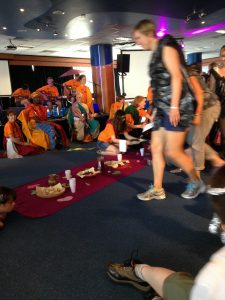
L’Arche Wedding feast
ACTIONS:
- What can you do to sit down at the Feast with Jesus this week? What do you need to stop doing in order to have the time and space to remember he is inviting you to the feast?
- What would help you remember that you are the invited guest of honor at the feast with Jesus? Eat on your best dishes or drink from a fancy glass this week to remind you to receive the gift of love and honor of Jesus.
- Cook a special meal and eat in with Jesus. Imagine Jesus sitting across from you. Imagine you are the guest of honor!
- Create space to sit across from your enemies and practice reconciliation with someone who is hard for you to feast with or celebrate with ...do this in your prayer time/imagine the scene. Allow Jesus to begin the healing process with you. READ Psalm 23 and Isaiah 25 to help you!
- LISTEN TO RICHARD ROHR’S HOMILY:“A Little Scripture Study is Necessary”
- Learn more about World Food Day (October 16). How can you help someone else enjoy a real feast this week? Buy a grocery gift card to give away to someone in need, give to a food bank, prepare a meal for someone. What else could you do to help those who don’t have the resources to feast?
Remember that Jesus is inviting you to feast with him today… what could that look like in the midst of all you have to do? How can you pause, breathe, and “receive the feast? “ Sending you much love and peace and hope today!
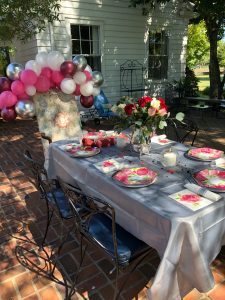
you are invited!
(thinplaceNASHVILLE is the house church we host via zoom twice a week. It is an interactive, multi-sensory gathering of all ages where we practice lectio divina)
Photos are from a worship service led by members of the L’Arche community hosted at the Greenbelt Arts Festival in the UK in 2013. In this service we acted out the parable of the Wedding Feast and it was the most joyful and wonderful worship I’ve ever experienced. Find out more about the L’Arche Community.
by James Amadon
In the midst of shutdowns, protests, and an exhausting election season, it is tempting to lose sight of the larger crisis that is steadily moving us into a very uncertain future: the breakdown of the earth’s natural systems, due in large part to humanity’s unsustainable and destructive way of life. Each week brings fresh evidence of volatile climatic events, pervasive animal and plant species loss, and struggling ecosystems on the verge of collapse.
It is tempting to turn away, but we must face this reality if we are going to, in the language of faith, repent and commit to a different direction. The good news is that more and more people are doing just that; here are three signs of hope.
1. The Growing Movement Away From Fossil Fuels
Fossil fuel has powered the modern world. While we can give thanks for the many benefits and improvements these fuels enabled, we have known for a long time that burning these fuels has slowly covered the earth in an extra blanket of carbon that is warming the planet to dangerous levels. Though many continue to drag their feet in the march towards renewable energy, there are signs that a big shift is underway:
- Eight million people took to the streets last fall for global climate strikes.
- For approximately 40 days this spring, the United States produced more electricity from wind, water, and sun than it did from coal.
- A growing number of cities, banks, universities, and other institutions are redirecting investment funds from fossil fuel to renewables, which are becoming cheaper and more available.
2. The Greening of Everything
More people are beginning to embrace an ecological worldview – the understanding that everything in creation is connected to everything else. This entails moving away from seeing care for creation as optional, or strictly environmental work, and moving towards the recognition that we must “green” everything. There are economists rethinking commerce from a planetary perspective, politicians pushing a “Green New Deal,” professional sports organizations committed to becoming carbon neutral, and community gardens sprouting up everywhere. You do not have to be an ecologist or environmentalist to be part of this movement – you can start right where you are in any aspect of your life and community – green it up!
3. The Rise of Eco-Faith
Driven largely by young people who understand intuitively that following Jesus requires caring for the earth, there is a shift happening within churches and the larger faith community. In her book Grounded, Diana Butler Bass traces the global nature of this shift and sees it as a “spiritual revolution – people discovering God in the world and a world that is holy….a rebirthing of faith from the ground up.” In my work leading Circlewood – a ministry that, like Godspace, was birthed from Mustard Seed Associates – I am regularly approached by young men and women eager to integrate their love for God and the planet into their lives and vocations.
These three signs of hope do not guarantee a better future, but they do offer encouragement in the midst of the current “doom and gloom” news cycles, and can motivate us to be a sign of hope in the corner of creation where God has planted us.
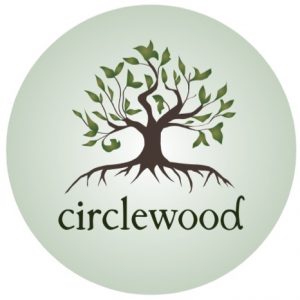 If you are interested in learning more about these hopeful trends, you are invited to Circlewood’s Signs of Hope webinar on Thursday, Oct. 29. In addition to sharing more good news, we will be honoring Christine and Tom Sine as “Sines of Hope” for their generosity, vision, and legacy of faith. Hope you will join us!
If you are interested in learning more about these hopeful trends, you are invited to Circlewood’s Signs of Hope webinar on Thursday, Oct. 29. In addition to sharing more good news, we will be honoring Christine and Tom Sine as “Sines of Hope” for their generosity, vision, and legacy of faith. Hope you will join us!
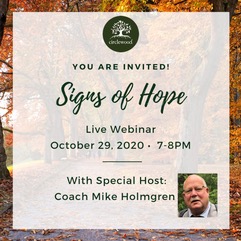
As an Amazon Associate, I receive a small amount for purchases made through appropriate links.
Thank you for supporting Godspace in this way.
When referencing or quoting Godspace Light, please be sure to include the Author (Christine Sine unless otherwise noted), the Title of the article or resource, the Source link where appropriate, and ©Godspacelight.com. Thank you!


